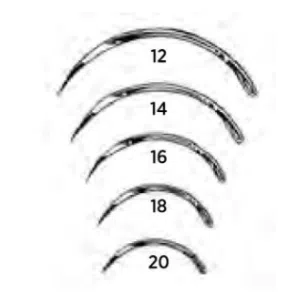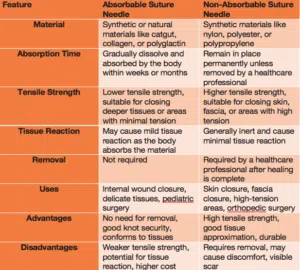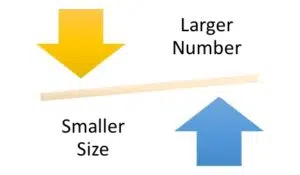
The time it takes for the suture depends on the tissue type:
- From Day I to Day XV: Muscle, subcutaneous tissue or skin
- From Weeks to Months: Fascia or tendon
- Months to Never: Vascular prosthesis
This blog post will explain suture material, suture needle size, and the components of the surgical suture needle.
The Past, The Present and The Future:
- Ancient origins: Sutures have been available since the Stone Age. In the past, humans tended to use bone needles and plant fibers to stitch wounds.
- The Present Era: From silk and catgut to modern synthetic materials like nylon and polypropylene, suture needles have come a long way offering surgeons a wider range of options for different procedures and patient needs.
- Innovations of Future: Dissolvable sutures, self healing sutures,and now robotic needles are some exciting developments to revolutionize wound closure in the future.
Classification of Suture Needles:
To classify the sutures as mainly absorbable or non-absorbable materials. They are further sub-classified into synthetic or natural sutures and monofilament or multifilament sutures.
Classification of Absorbable vs Non Absorbabale
Absorbable
Synthetic: Monocryl, vicryl, PDS
Natural: Collagens
Non Absorbable
Synthetic: Ethilon Prolene
Natural: Surgical cotton, Surgical silk, Surgical steel
The uniform tensile strength of the suture needs to hold the wound for the required time for healing and then absorbed. The suture should be predictable, easy to handle, produce minimal reaction and knot securely
Difference between Absorbable and Non absorbable Sutures
Natural vs. Synthetic: The suture can be further categorized by its raw origin.
Natural: The sutures are made from natural fibers. These kinds are less frequently used as they tend to provoke a greater tissue reaction. But on the other hand, suture silk is used to regularly secure of surgical drains
Synthetic: These are manmade material. They tend to be more predictable than the natural suture. They tend to be more predictable than natural suture ie the loss of tensile strength and absorption.
Suture Size
To understand the suture size in easy terms. Learn the principle that the more the size of the suture, the smaller the diameter. To explain, 7-O suture is 4-0 suture. where the diameter of the suture will affect its handling properties and the tensile strength.
The Components of Surgical Needle:
The surgical needle allows the placement of suture within the tissue carrying material through minimal residual trauma.
A surgical needle consists of :
- The swagged end that connects the needle to the suture
- The needle body, or shaft, is the region around the needle holder. Needle bodies can be round, cutting, or reverse cutting.
- The needlepoint acts to pierce the tissue, beginning at the maximal point of the body and running to the end of the needle, which can be either sharp or blunt. Source: (Wikipedia)
Common FAQ’s:
Que: How do I hold the needle driver for suture?
Ans: You can refer to the video
Que: Which type of suture needle will my doctor use?
Ans: The selection, it depends on the type of surgery, the location of the wound, and the individual needs. Your doctor needs to choose the best option based on these factors.
Que: What are the advantages and disadvantages of each type of absorbable or non absorbable suture?
Ans: Absorbable suture dissolves over the time, eliminating the need to removal, but it have lower strength. Non absorbable suture are strong and durable but requires removal later.
Que: How painful is suture needle insertion and removals?
Ans: This depends upon the size of the wound. The doctor may use the local anesthesia to numb the area of discomfort.
Que: Can I remove my stitches of my own?
Ans: Never remove your stiches ,always get them removed from a healthcare expert at the suitable time.
Que: What happens if I loose the stich?
Ans: Contact your doctor if you loose a stich. He would be able to take the action.
Que: Where can I buy a suture needle?
Ans: You can reach out to us at +91-8860904734 orhttps://healwellsurgitech.com
What are sutures used for?
Suture and vibrant needles are used for the wound healing and they have the optimum setting for the wound healing. Mostly Sutures are used to close the wounds.
Conclusion: Suture Needles are the powerful symbol of stitching. While this small surgical tool play a critical role in mending my body stich by stitch.
Disclaimer: The content participated in the blog posts is for information purpose only. The purpose of content, visuals and images and other accoutrements of the website are to promote broad consumer understanding and knowledge of health related motifs. It isn’t intended to be a cover for any of the treatment, judgement or medical advice. Always seek the advise of good healthcare provider with any questions, no way disregard professional medical advice just on the base of information shared on the website.


2 thoughts on “Suture Needle: Know about wound stitching”